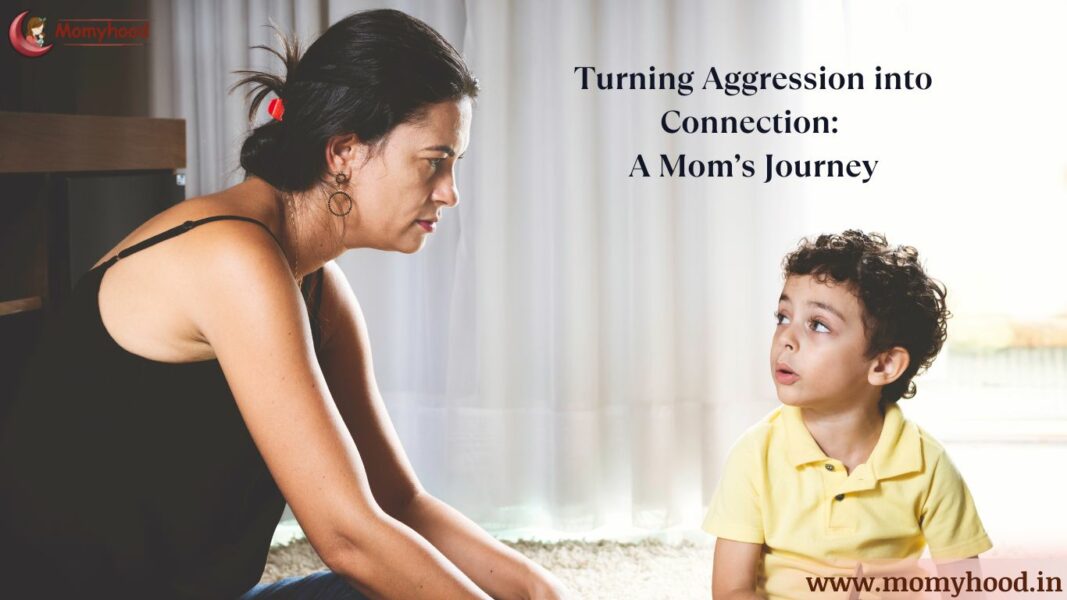As a mom who’s been through the trenches of dealing with challenging behavior, I wanted to share my story in the hope it might help other parents going through something similar. When my son was 4.5 years old, he was struggling with big emotions and, unfortunately, aggressive outbursts. There were moments of hitting, yelling, and throwing things—things that left me feeling helpless and questioning if I was doing something wrong as a parent.
I didn’t have all the answers back then, and I wasn’t sure where to start, but I decided to approach the situation with a mix of patience, observation, and a lot of trial and error. Here’s what worked for us.
Looking for the Why: Understanding the Triggers
I realized that my son’s behavior wasn’t just “bad behavior.” It was his way of communicating something he couldn’t put into words. So, I started paying attention to the patterns.
- Did he act out when he was tired or hungry?
- Was he overstimulated or feeling ignored?
- Was he frustrated about not being able to express himself clearly?
More often than not, I found that his outbursts were linked to these triggers. For instance, if he skipped his afternoon nap or missed a snack, he was far more likely to lash out. This insight helped me take proactive steps, like ensuring he was well-fed and rested, to minimize the chances of aggressive episodes.
Creating a Calm-Down Space
One of the most helpful things I did was set up a “calm-down corner” at home. It wasn’t a punishment spot; instead, it was a safe, cozy corner filled with soft pillows, sensory toys, and books. When my son felt overwhelmed, I would gently guide him there. At first, he resisted, but over time, it became his go-to spot to decompress.
Teaching Alternatives to Aggression
Kids need to know that their feelings are valid, but they also need to learn better ways to express them. When my son lashed out, I didn’t just say, “Stop hitting.” Instead, I taught him alternatives:
- “When you’re angry, use your words. Say, ‘I’m upset.’”
- “If you’re frustrated, let’s stomp our feet or squeeze this stress ball.”
At first, I had to model these behaviors repeatedly, but consistency paid off. Gradually, he started choosing these alternatives over aggressive actions.
📣 Loved what you read? Want to go deeper into conscious parenting? ✨ The Power of Manifestation in Parenting is now available — A soulful guide packed with real-life tools like affirmations, energy shifts, and sleep talk that I personally use with my son, Hitarth. 💛 Start your journey toward calmer, connected parenting today. 🎉 Launch Offer: Only ₹99 (limited-time price!) 📲 Instant download. No waiting. 👉 Grab your copy now!.
Practicing Patience and Consistency
I’ll admit, it was tough to stay calm every single time. There were moments I felt like yelling myself, but I realized that reacting with frustration only escalated the situation. Instead, I took deep breaths, reminded myself that his behavior wasn’t personal, and responded with a calm yet firm tone.
Consistency was key. Every time he acted out, I responded the same way: acknowledge his feelings, guide him to the calm-down corner, and talk about what happened once he was calm. It wasn’t a quick fix, but over weeks and months, I saw improvement.
Seeking Support When Needed
One of the turning points for us was consulting a speech therapist. While my son wasn’t delayed in speech, his vocabulary wasn’t enough to express complex emotions, and he often struggled to articulate his needs. The therapist helped us build his emotional vocabulary and gave me tips to encourage communication at home.
Focusing on Positive Reinforcement
Whenever my son handled a challenging situation well—like using his words instead of hitting—I made sure to acknowledge and praise him. Simple phrases like “I’m so proud of how you used your words to tell me you were upset” worked wonders for his confidence and reinforced positive behavior.
I Got What I Wanted
Over time, the aggressive outbursts became less frequent. My son learned to express himself in healthier ways, and our bond grew stronger. It wasn’t an overnight transformation, but it was a journey worth taking.
If you’re dealing with a child who’s aggressive or struggling with big emotions, know that you’re not alone. It’s not a reflection of your parenting, and it doesn’t mean you’re failing. Every child is different, and they’re all learning how to navigate their emotions.
This is just my story, but I hope it inspires or helps in some small way. With patience, consistency, and a willingness to try new approaches, things can and will get better. You’ve got this! 💕
Your comments and shares do more than just support our blog—they uplift the amazing moms who share their stories here. Please scroll down to the end of the page to leave your thoughts, and use the buttons just below this line to share. Your support makes a big difference!



